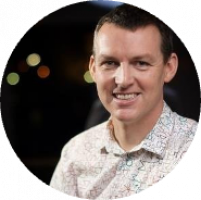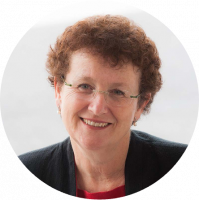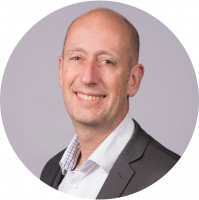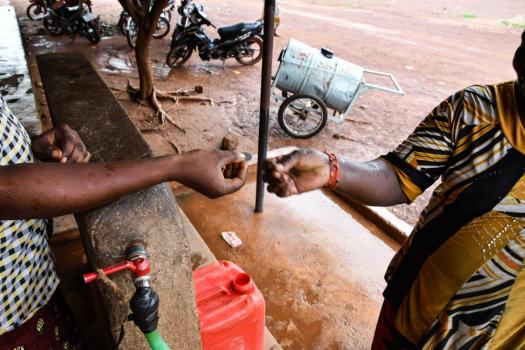Experiences in scaling market-based approaches in water and sanitation
The Hague, 9 November 2022
Published on: 05/10/2022

HYBRID EVENT
WASH debates provide an informal platform for Dutch organisations and professionals working in the international water sector to connect and to discuss the latest developments and trends in the sector.
In this debate, we focused on experiences in scaling market-based approaches in water and sanitation. How are market-based approaches performing as models to extend services in both water and sanitation? And how are they supported or undermined by governments and their policies, both nationally and internationally?
The debate focused on answering the following questions:
 John Butterworth is co-director of IRCs Global Programme, lead of the Research and Learning staffing group within IRCs Change Hub and a member of the management team. The Change Hub supports IRCs focus country programmes to deliver innovative and impactful activities that strengthen systems and improve services, facilitates planning monitoring, analysis and learning organisation-wide, and uses evidence and our influencing skills to drive change at regional and global levels.
John Butterworth is co-director of IRCs Global Programme, lead of the Research and Learning staffing group within IRCs Change Hub and a member of the management team. The Change Hub supports IRCs focus country programmes to deliver innovative and impactful activities that strengthen systems and improve services, facilitates planning monitoring, analysis and learning organisation-wide, and uses evidence and our influencing skills to drive change at regional and global levels.
John is a Briton and European, working from Lodz in Poland where he lives with his family. He has worked for IRC since 2005 and between 2016 and 2019 he was the country director in Ethiopia. He has current roles in the executive committees of the Rural Water Supply Network and the Agenda for Change, and is the Influencing lead for the Destination 2030 Alliance.
Presentation title: What Do We Do About the Importance of Household Investment in Sanitation and Water?
 Dr Kerstin Danert is the director of Ask for Water GmbH, a start-up based in Switzerland, which she founded in early 2020. Originally a mechanical engineer, with a PhD in innovation diffusion, she now has 24 years of experience as a water specialist, researcher and facilitator. Her work in international development cooperation, has been with national and local governments, UN agencies, NGOs, community-based organisations, private enterprises and donor agencies.
Dr Kerstin Danert is the director of Ask for Water GmbH, a start-up based in Switzerland, which she founded in early 2020. Originally a mechanical engineer, with a PhD in innovation diffusion, she now has 24 years of experience as a water specialist, researcher and facilitator. Her work in international development cooperation, has been with national and local governments, UN agencies, NGOs, community-based organisations, private enterprises and donor agencies.
Her focus over the years has been on domestic and productive water supplies, and groundwater development in sub-Saharan Africa. Among other things, she has worked on, documented and evaluated projects to introduce technologies which are particularly suited to household investments including domestic roofwater harvesting and manual drilling. As co-lead of the Rural Water Supply Network (RWSN) theme on sustainable groundwater development since 2005, Kerstin has also undertaken extensive efforts to improve the technical quality of borehole drilling and pump installation through training, films, guidance documents and advocacy.
Presentation Title: The Simple, Market-Based, Affordable and Repairable Technologies (SMART) Approach for Water Supplies: Assessment Findings
 Saiful Islam is the CEO of Max TapWater and a result driven dynamic leader with 18 years of leadership experience. As CEO, he has made significant contribution to develop Max Tapwater (A rural pipe-water network with an aim to connect 15000 households with uninterrupted water supply within 4 years). He has very good understanding and could execute community marketing for Max Tapwater properly. Strong governance for Max Tapwater has been set to ensure that, people/clients are getting uninterrupted good quality water. Also, the pricing was set rightly both for the community and the organization that allows the community to pay enough to keep the social business sustainable.
Saiful Islam is the CEO of Max TapWater and a result driven dynamic leader with 18 years of leadership experience. As CEO, he has made significant contribution to develop Max Tapwater (A rural pipe-water network with an aim to connect 15000 households with uninterrupted water supply within 4 years). He has very good understanding and could execute community marketing for Max Tapwater properly. Strong governance for Max Tapwater has been set to ensure that, people/clients are getting uninterrupted good quality water. Also, the pricing was set rightly both for the community and the organization that allows the community to pay enough to keep the social business sustainable.
He also has rich background in healthcare sustainability with Marie Stopes Bangladesh (as Commercial Director) and earlier developed retail pharmacy chain (Wellbeing Pharmacy with United Group). He is a MBA from IBA, Dhaka University.
Presentation Title: Expanding piped-water supplies under a safe water enterprises model in Bangladesh
 Valentin Post is the CEO FINISH Mondial deputed by WASTE. He has over 25 years' experience in working in developing countries. His field of expertise is financing, public-private partnerships, enterprise collaboration and capacity development in solid waste management and sanitation. He has managed the Waste Venture Facility, Guarantee Funds, and initiated several international public private partnerships.
Valentin Post is the CEO FINISH Mondial deputed by WASTE. He has over 25 years' experience in working in developing countries. His field of expertise is financing, public-private partnerships, enterprise collaboration and capacity development in solid waste management and sanitation. He has managed the Waste Venture Facility, Guarantee Funds, and initiated several international public private partnerships.
He is a co-founder of the Financial Inclusion Improves Sanitation and Health (FINISH) programme in India (2008), Kenya (2013), Bangladesh, Ethiopia, Tanzania and Uganda (all in 2018). Currently he is on deputation by WASTE as the CEO of FINISH Mondial. FINISH Mondial is partnership between WASTE, AMREF and Aqua for All. It covers six countries and has its own governance structures. FINISH Mondial has a track record of 1 million sanitation systems in 10 years and is set to scale this to 2 million in 5 years in a € 440 million sanitation drive that is mostly commercially financed.
Presentation Title: Developing sanitation markets in different settings: Cases from India, Kenya and Ethiopia
 Clarissa Brocklehurst is a water supply and sanitation specialist with broad global experience. She previously served as the Chief of Water, Sanitation and Hygiene at UNICEF, leading the team that advises and provides technical support to the 100 country-level WASH programmes run by UNICEF. She is currently a senior advisor to the Sanitation and Water for All partnership. Clarissa has also played a role in development of strategy and advocacy for the global water supply and sanitation sector, and serves on several technical advisory groups for sector initiatives.
Clarissa Brocklehurst is a water supply and sanitation specialist with broad global experience. She previously served as the Chief of Water, Sanitation and Hygiene at UNICEF, leading the team that advises and provides technical support to the 100 country-level WASH programmes run by UNICEF. She is currently a senior advisor to the Sanitation and Water for All partnership. Clarissa has also played a role in development of strategy and advocacy for the global water supply and sanitation sector, and serves on several technical advisory groups for sector initiatives.
She is an Adjunct Professor at the Department of Environmental Sciences and Engineering of the Gillings School of Global Public Health at the University of North Carolina at Chapel Hill. As a consultant, she works for a variety of clients including the World Bank, UNICEF and WHO, and has advised governments on water and sanitation sector reform to benefit the poor.
 Dr Patrick Moriarty is IRC's Chief Executive Officer. A Civil Engineer by first degree and Water Resource Management expert by main experience, with an emphasis on interdisciplinary work on water service delivery and local water governance. Patrick has over twenty years experience of a broad range of issues around water, its management and its use in improving human well-being , predominantly in Africa and South Asia.
Dr Patrick Moriarty is IRC's Chief Executive Officer. A Civil Engineer by first degree and Water Resource Management expert by main experience, with an emphasis on interdisciplinary work on water service delivery and local water governance. Patrick has over twenty years experience of a broad range of issues around water, its management and its use in improving human well-being , predominantly in Africa and South Asia.
Patrick has been with IRC since 2000, and has held several leadership positions; as head of knowledge development; IRC's country director in Ghana; and Director of one of the IRC's major projects -Triple-S.
Patrick's main area of interest is in how IRC can ignite and support sector-wide change that brings improved services (and more sustainable water resource use) to all. He finds the most professional satisfaction
The Dutch Ministry of Foreign Affairs (MFA) seeks to contribute to the achievement of SDG 6 by providing access to water supply for 30 million people, and to sanitation for 50 million people (MFA, 2017). The policy puts emphasis on:

With less than 8 years left to achieve United Nations Sustainable Development Goal (SDG) 6, the world is largely off-track on its journey to ensure water and sanitation for all by 2030. We know that we need to accelerate progress, in some areas up to four times faster, to meet the goal. Are there additional ways to do more and go faster?
Markets in water and sanitation involve private enterprises providing water- and sanitation-related products and services, including directly to households which is the focus of this event. These are public-private partnerships. Governments shape markets and private sector entities provide much of the local capacity. They are particularly attractive because under the right circumstances markets have great potential to scale. Households make most of the investments, so finance is actually leveraged (by the vital public to create and regulate markets).
The private sector – mainly local enterprises - is well equipped to grow to provide small water enterprises (supplying water through small piped schemes) or the kind of services that households need for on-site sanitation or self-supply in water. On-site sanitation involves collection and containment on household premises meaning toilets and pits or septic tanks, without the benefit of sewers to take away waste, a system of faecal sludge collection, treatment and safe disposal. Self-supply in water often also involves holes in the ground, but deeper ones such as dug wells or drilled boreholes that tap groundwater for household water supply. The latter is again an attractive option when piped services are missing. Indeed, piped water is proving to be very difficult and costly to extend everywhere especially to remote and scattered households or those living on the edge of growing urban settlements. Other water-related markets are enterprises dealing in filters and water treatment products.
Market-based approaches are widely accepted and supported in current efforts to extend sanitation. Some examples of Dutch-supported and other key programmes include Finish Mondial, Aqua for All’s work on the toilet economy, and Safisana. Market-based approaches are rather contested, and more often ignored by governments and development partners in relation to water supply, except in high income contexts where self-supply is accepted and supported as necessary to achieve universal access to safe water supplies. But there are exceptions (see Sutton & Butterworth, 2020) and a recent assessment of Smart Centres commissioned by the MFA assessed their contribution.
Some challenges and constraints to the development of market-based approaches include: the need for a vision around market creation and public sector investments to shape the market, finance to support the expansion of private sector capacities and activities, and capacity of government to regulate markets.
Sally Sutton with John Butterworth, 2021
This book published with support from IRC documented how household investment contributes to water supply much more than is commonly recognised. More than one billion people get their drinking water from sources they have accessed or upgraded themselves. While recognised, supported and regulated in high-income countries that understand the high costs of extending services to everyone, few low- and middle- income countries are working to improve self-supply in water towards its full potential whether in terms of scale, or performance.